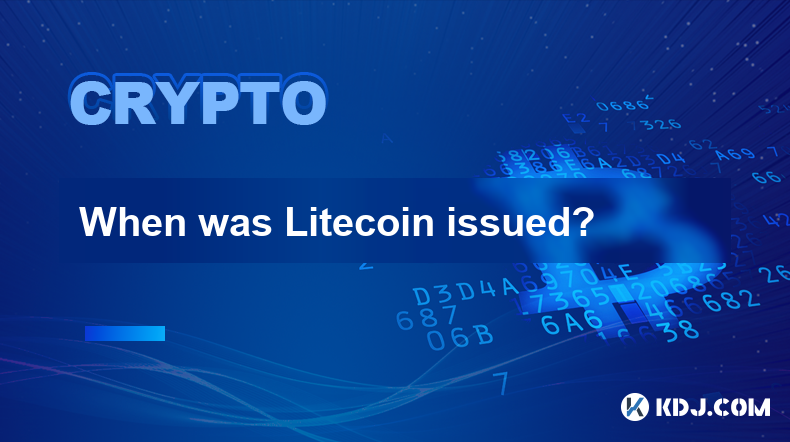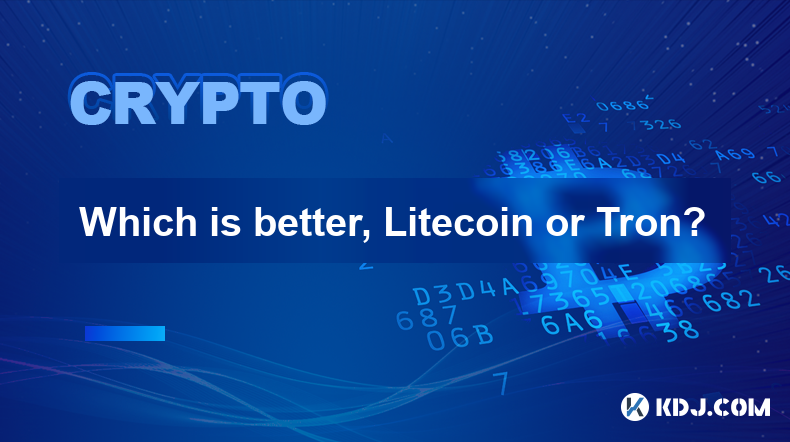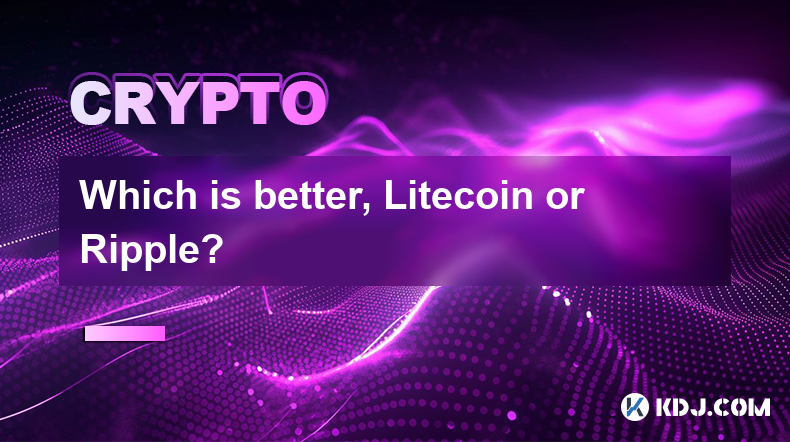-
 Bitcoin
Bitcoin $96,184.8964
-1.67% -
 Ethereum
Ethereum $2,613.8000
-5.28% -
 Tether USDt
Tether USDt $1.0002
-0.01% -
 XRP
XRP $2.4097
-0.20% -
 Solana
Solana $194.1494
-2.01% -
 BNB
BNB $584.0632
-0.03% -
 USDC
USDC $1.0002
0.01% -
 Dogecoin
Dogecoin $0.2482
-2.64% -
 Cardano
Cardano $0.6915
-5.44% -
 TRON
TRON $0.2329
1.90% -
 Chainlink
Chainlink $18.0786
-6.17% -
 Stellar
Stellar $0.3252
-1.56% -
 Avalanche
Avalanche $24.1651
-5.00% -
 Toncoin
Toncoin $3.7251
-1.60% -
 Shiba Inu
Shiba Inu $0.0...01569
2.87% -
 Sui
Sui $2.9765
-7.57% -
 UNUS SED LEO
UNUS SED LEO $9.8410
0.39% -
 Hedera
Hedera $0.2297
-3.18% -
 Litecoin
Litecoin $102.7758
-1.94% -
 Hyperliquid
Hyperliquid $23.0993
-4.09% -
 Bitget Token
Bitget Token $6.3796
-4.49% -
 Polkadot
Polkadot $4.5430
-3.54% -
 Bitcoin Cash
Bitcoin Cash $317.7301
-2.74% -
 Ethena USDe
Ethena USDe $1.0001
-0.01% -
 MANTRA
MANTRA $5.9231
-0.89% -
 Dai
Dai $1.0000
0.01% -
 Uniswap
Uniswap $8.8164
-4.16% -
 Ondo
Ondo $1.3667
-4.65% -
 Monero
Monero $212.5079
-6.05% -
 Pepe
Pepe $0.0...09250
-3.04%
What are the tax implications of trading Electroneum (ETN) coins?
Understanding cryptocurrency taxation principles is crucial for navigating transactions involving Electroneum (ETN), as its sale, exchange, or transfer may trigger capital gains or losses subject to taxation.
Jan 06, 2025 at 12:56 pm

Key Points:
- Understanding Cryptocurrency Taxation Principles
- Classifying Electroneum (ETN) Transactions
- Calculating Capital Gains/Losses on ETN Trades
- Reporting ETN Income and Losses on Tax Returns
- Avoiding Common Tax Pitfalls Related to ETN Trading
Understanding Cryptocurrency Taxation Principles:
Cryptocurrencies, such as Electroneum (ETN), are typically treated as property or capital assets for tax purposes in most jurisdictions. This means that their sale, exchange, or transfer may trigger capital gains or losses, which can be subject to taxation depending on the applicable tax laws. It's important to note that tax treatment can vary across different countries and jurisdictions, so it's crucial to consult with local tax authorities for specific guidance.
Classifying Electroneum (ETN) Transactions:
The tax implications of Electroneum (ETN) trading depend on the type of transaction performed. Common transactions include:
- Purchase/Acquisition: Acquiring ETN coins through an exchange or broker is considered a purchase or acquisition, which does not trigger any immediate tax consequences. The cost basis of the ETN coins is the purchase price, including any applicable fees.
- Sale/Disposal: Selling or exchanging ETN coins for fiat currency (e.g., USD, EUR) or other cryptocurrencies is a disposal event and can trigger capital gains or losses. The profit or loss is calculated as the difference between the sale proceeds and the cost basis of the ETN coins.
- Exchange/Swap: Trading ETN coins for other cryptocurrencies is treated as a taxable exchange and results in capital gains or losses. This is similar to a sale/disposal transaction, where the profit or loss is determined based on the difference between the value of the ETN coins received and the cost basis of the ETN coins given up.
Calculating Capital Gains/Losses on ETN Trades:
To calculate capital gains or losses on Electroneum (ETN) trades, follow these steps:
- Determine the Cost Basis: Identify the cost basis of the ETN coins involved in the transaction. This is the purchase price, including any fees, when you acquired the coins.
- Establish the Sale Proceeds: Determine the sale proceeds from the disposal or exchange of the ETN coins. This is the amount of fiat currency or the fair market value of the other cryptocurrency you received.
- Calculate the Gain/Loss: Calculate the profit or loss by subtracting the cost basis from the sale proceeds. If the result is positive, you have a capital gain. If the result is negative, you have a capital loss.
Reporting ETN Income and Losses on Tax Returns:
In most jurisdictions, capital gains or losses from Electroneum (ETN) trading must be reported on individual tax returns. The specific reporting requirements may vary depending on the country or jurisdiction. Common ways to report ETN income and losses include:
- As Part of Capital Gains/Losses: ETN gains and losses are often reported as part of overall capital gains and losses on tax returns. This may require using a specific tax schedule or form provided by tax authorities.
- As Business Income/Expense: If ETN trading is considered a form of business activity, such as for traders or professionals, the income and expenses related to ETN trades may be reported as business income or expense on tax returns.
Avoiding Common Tax Pitfalls Related to ETN Trading:
To avoid common tax pitfalls associated with Electroneum (ETN) trading, consider the following:
- Accurate Record-Keeping: Maintain accurate records of all ETN transactions, including dates, costs, sale proceeds, and any applicable fees. This will help in accurately calculating capital gains/losses and reporting them on tax returns.
- Understanding Tax Basis Rules: Determine the cost basis of ETN coins acquired through forks, airdrops, or gifts to ensure accurate tax calculations. These transactions may have different tax implications compared to purchases from exchanges.
- Reporting Taxable Events: Report all taxable events related to ETN trading, including sales, exchanges, and any other disposals that result in capital gains or losses. Failure to report taxable events can lead to penalties and interest charges.
FAQs:
- Q: Is Electroneum (ETN) taxed as a currency or property?
A: In most jurisdictions, Electroneum (ETN) is classified as property or a capital asset for tax purposes, similar to stocks or bonds. - Q: How do I report capital gains on ETN trades on my tax return?
A: The reporting requirements vary depending on the country or jurisdiction. Generally, capital gains on ETN trades are reported as part of overall capital gains or losses on individual tax returns. - Q: Can I minimize taxes on ETN trading?
A: To minimize taxes, consider holding ETN coins for long-term gains (over a year or as defined by local tax laws), which may qualify for lower tax rates in some jurisdictions. Additionally, keeping accurate records and understanding tax basis rules can help avoid overpaying taxes. - Q: Is it legal to trade Electroneum (ETN)?
A: The legality of Electroneum (ETN) trading varies across different jurisdictions. It's recommended to check with local laws and regulatory bodies to ensure trading ETN is permitted in your specific location. - Q: What happens if I don't report ETN income on my tax return?
A: Failure to report taxable ETN income can have serious consequences. Tax authorities may impose penalties, interest charges, and even legal action for non-compliance.
Disclaimer:info@kdj.com
The information provided is not trading advice. kdj.com does not assume any responsibility for any investments made based on the information provided in this article. Cryptocurrencies are highly volatile and it is highly recommended that you invest with caution after thorough research!
If you believe that the content used on this website infringes your copyright, please contact us immediately (info@kdj.com) and we will delete it promptly.
- Binance Coin (BNB) Shows Resilience in a Volatile Cryptocurrency Market
- 2025-02-08 21:06:05
- USDT, USDC Demand Surges as Businesses Embrace Digital Payments
- 2025-02-08 21:01:06
- 5 Coins to Invest in Before the Next Crypto Bull Run
- 2025-02-08 21:01:06
- Top Crypto Projects to Invest in February 2025: Qubetics Leads the Race
- 2025-02-08 21:01:06
- USDC Market Cap Surpasses $56B, Striding Towards the Center of the Onchain Finance Stage
- 2025-02-08 21:01:06
- Panshibi (PNS) Favor by Whales over Tron (TRX) Signals the Return of Meme Coin Mania
- 2025-02-08 21:01:06
Related knowledge

When was Litecoin issued?
Feb 04,2025 at 02:36am
When was Litecoin Issued?Key Points:Litecoin's inception and developmentLitecoin's launch date and market dynamicsLitecoin's technical specifications and key featuresLitecoin's Inception and DevelopmentLitecoin, conceived by former Google engineer Charlie Lee, emerged as a fork of Bitcoin in October 2011. Inspired by Bitcoin's revolutionary blockchain t...

Which is better, Litecoin or Tron?
Feb 04,2025 at 10:30pm
Key Points:Similarities between Litecoin and Tron: Decentralized, open-source blockchain platformsDifferences between Litecoin and Tron: Use cases, consensus mechanisms, transaction speedsFactors to consider when choosing between Litecoin and Tron: Investment goals, risk tolerance, specific use casesPotential benefits and drawbacks of Litecoin and Tron:...

How to buy and trade Litecoin?
Feb 04,2025 at 12:24pm
Key Points:Understand the Basics of LitecoinSelect a Suitable Cryptocurrency ExchangeCreate an Account on the ExchangeFund Your AccountPlace a Buy Order for LitecoinSecurely Store Your LitecoinUnderstand Litecoin TradingHow to Buy Litecoin?1. Understand the Basics of LitecoinLitecoin (LTC) is a decentralized digital currency similar to Bitcoin.Created i...

Which has better potential, Litecoin or Ethereum?
Feb 04,2025 at 05:30pm
Key Points:Litecoin and Ethereum are two of the most popular cryptocurrencies in the world.Both coins have their own unique advantages and disadvantages.Litecoin is a faster and cheaper transaction coin than Ethereum.Ethereum is a more versatile platform than Litecoin, and it can be used to create decentralized applications (dApps).Litecoin has a long h...

What country is the founder of Litecoin from?
Feb 04,2025 at 05:55am
Key Points:Litecoin's Founder and the Relationship with Charles LeeLitecoin's Technical Features and Similarities to BitcoinLitecoin's Role in the Cryptocurrency Ecosystem and Its PopularityComparative Analysis of Litecoin with Major CryptocurrenciesLitecoin's Community Involvement and PartnershipsArticle Content:Litecoin's Founder and the Relationship ...

Which is better, Litecoin or Ripple?
Feb 04,2025 at 08:00pm
Key Points:Litecoin: a decentralized, peer-to-peer cryptocurrency based on the Proof-of-Work consensus mechanismRipple: a centralized, enterprise blockchain solution designed for fast and low-cost paymentsDirect comparison of Litecoin vs. Ripple in terms of technology, market capitalization, use cases, and transaction feesPotential benefits and drawback...

When was Litecoin issued?
Feb 04,2025 at 02:36am
When was Litecoin Issued?Key Points:Litecoin's inception and developmentLitecoin's launch date and market dynamicsLitecoin's technical specifications and key featuresLitecoin's Inception and DevelopmentLitecoin, conceived by former Google engineer Charlie Lee, emerged as a fork of Bitcoin in October 2011. Inspired by Bitcoin's revolutionary blockchain t...

Which is better, Litecoin or Tron?
Feb 04,2025 at 10:30pm
Key Points:Similarities between Litecoin and Tron: Decentralized, open-source blockchain platformsDifferences between Litecoin and Tron: Use cases, consensus mechanisms, transaction speedsFactors to consider when choosing between Litecoin and Tron: Investment goals, risk tolerance, specific use casesPotential benefits and drawbacks of Litecoin and Tron:...

How to buy and trade Litecoin?
Feb 04,2025 at 12:24pm
Key Points:Understand the Basics of LitecoinSelect a Suitable Cryptocurrency ExchangeCreate an Account on the ExchangeFund Your AccountPlace a Buy Order for LitecoinSecurely Store Your LitecoinUnderstand Litecoin TradingHow to Buy Litecoin?1. Understand the Basics of LitecoinLitecoin (LTC) is a decentralized digital currency similar to Bitcoin.Created i...

Which has better potential, Litecoin or Ethereum?
Feb 04,2025 at 05:30pm
Key Points:Litecoin and Ethereum are two of the most popular cryptocurrencies in the world.Both coins have their own unique advantages and disadvantages.Litecoin is a faster and cheaper transaction coin than Ethereum.Ethereum is a more versatile platform than Litecoin, and it can be used to create decentralized applications (dApps).Litecoin has a long h...

What country is the founder of Litecoin from?
Feb 04,2025 at 05:55am
Key Points:Litecoin's Founder and the Relationship with Charles LeeLitecoin's Technical Features and Similarities to BitcoinLitecoin's Role in the Cryptocurrency Ecosystem and Its PopularityComparative Analysis of Litecoin with Major CryptocurrenciesLitecoin's Community Involvement and PartnershipsArticle Content:Litecoin's Founder and the Relationship ...

Which is better, Litecoin or Ripple?
Feb 04,2025 at 08:00pm
Key Points:Litecoin: a decentralized, peer-to-peer cryptocurrency based on the Proof-of-Work consensus mechanismRipple: a centralized, enterprise blockchain solution designed for fast and low-cost paymentsDirect comparison of Litecoin vs. Ripple in terms of technology, market capitalization, use cases, and transaction feesPotential benefits and drawback...
See all articles

























































































